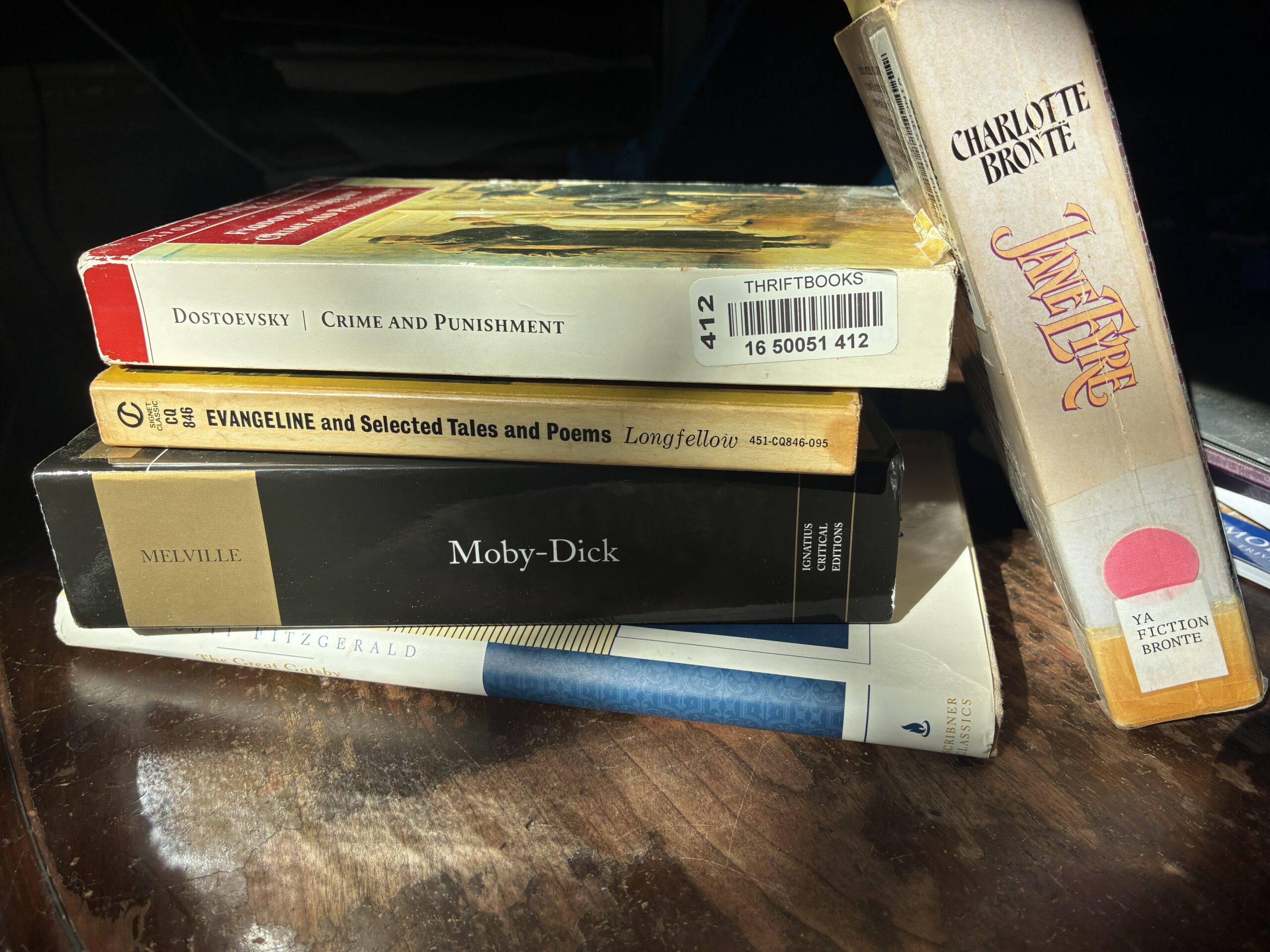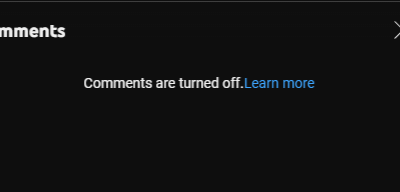In high school and college, I used to feel so stupid studying literature because I never saw the imagery within it on my own. When I read the assigned books, I would usually think, ‘that was a pretty good book’, but that was where it ended for me. When the teacher discussed all the hidden meaning and themes, I was always fascinated by them. But then I would feel like an idiot because I never saw any of it without help.
In my twenties, despite not being in school and having the reading assigned, I continued to read works of literature. I was hoping that as I got older, I might start to see all the hidden literature-y stuff with my (theoretically) more mature brain. I was unsuccessful. Each book I read was good, but I didn’t know why it was good. And I could sense an entire world of things that were hidden to me. I didn’t have eyes to see.
I eventually came to the conclusion that I just wasn’t smart enough to “get” literature. I would still occasionally like to read one of the classics, but I did so without torturing myself over trying to understand why they were “the classics.”
Life progressed. I married, I had kids, which led to a reversion to my faith and I started homeschooling. We found our way into a Classical curriculum and I spent the next decade and a half immersed in Catholicism and Classical education.
It was when my oldest entered high school and started her first literature course that my interest in it was rekindled. Or, to put it more precisely, my interest in understanding it was rekindled. I didn’t want to tell my daughter I was reading her literature books because I didn’t want her asking me any questions about her assigned reading and finding out how dumb at literature I was. So, I secretly read her assigned books early in the morning while she was still sleeping.
In doing so, I made an astounding discovery. Not only did I enjoy the books, but I could see deeper meaning in them! I’m sure I wasn’t seeing everything, but I was definitely seeing more than the superficial story. I even bought an old Cliff’s Notes on one of the books to double check my insights and, sure enough, I was definitely seeing some of the things lingering below the surface.
Why was I able to see the literature-y stuff? It took some contemplation for me to settle on what had happened to give me eyes to see. It wasn’t that I was any smarter. Though I was older, the brain fog and mental chaos that came with half a dozen little people occupying my house 24/7 worked as smarts repellent. I was definitely not smarter. It was something else besides a raise in IQ.
Something had woken up a part of my brain that had long lain dormant. All those years of frustration and it never occurred to me that I’d had such difficulty understanding the timeless truths found in literature because I hadn’t had the right formation to see them.
Growing up in a secular, morally relativist, material culture with no objective truth and marinating in positivism made it difficult to see anything in the metaphysical realm, be it higher truths, higher virtues or the workings of a higher being. Moral relativism says there is no stationary right and wrong and, thanks to western society being steeped in nihilism, there are no good people, there is no hope, there is no meaning and there is no existence. Being formed under such circumstances– no wonder I didn’t have eyes to see! It was amazing I got any enjoyment out of the books at all!
With my reversion came a lot of spiritual reading that immersed me in metaphysics and higher, objective truths. I spent a lot of time reading biblical studies which examined the many stories within the greater story of salvation, the very drama of humanity. Within the pages of the Bible is the gamut of human brokenness and human virtue. Man tries to make himself happy with every conceivable option apart from God and fails in every conceivable way. Peace and contentment only come when he finally turns to what he was created for, his Creator.
God never stops seeking the love of the little creatures he made. So anxious is He to unlock the gates of heaven to his prodigal children that He Incarnated and then wrote the whole story on our hearts and into creation so that we are constantly being pointed towards Him if we allow ourselves to heed the metaphysical directions.
These maps etched onto our souls and into nature led humanity to suspect there was more to the world than what we saw. Some men followed their internal charts and, sensing God in nearly everything around them and the urge to worship Him, came up with mythology. Other, more pragmatic men followed their internal charts through the sciences and came up with philosophy. Through mythology, God gave us faith; through philosophy, God gave us reason. He united the two with the Incarnation. And it is the light of the Incarnation that reveals the good, the true and the beautiful. It is the light of the Incarnation that inspires our hearts to write literature.
It is through this lense that my children, and I by proxy, were being educated and formed. It is this formation that finally gave me, while reading literature, eyes to see.
Post-Christian secular humanist society inadvertently (or maybe advertently, I don’t know) kept me from seeing higher truths and higher meanings by keeping my eyes only in the temporal. It was not until I was re-formed to look up that I could finally see the hidden world of the eternal.





0 Comments